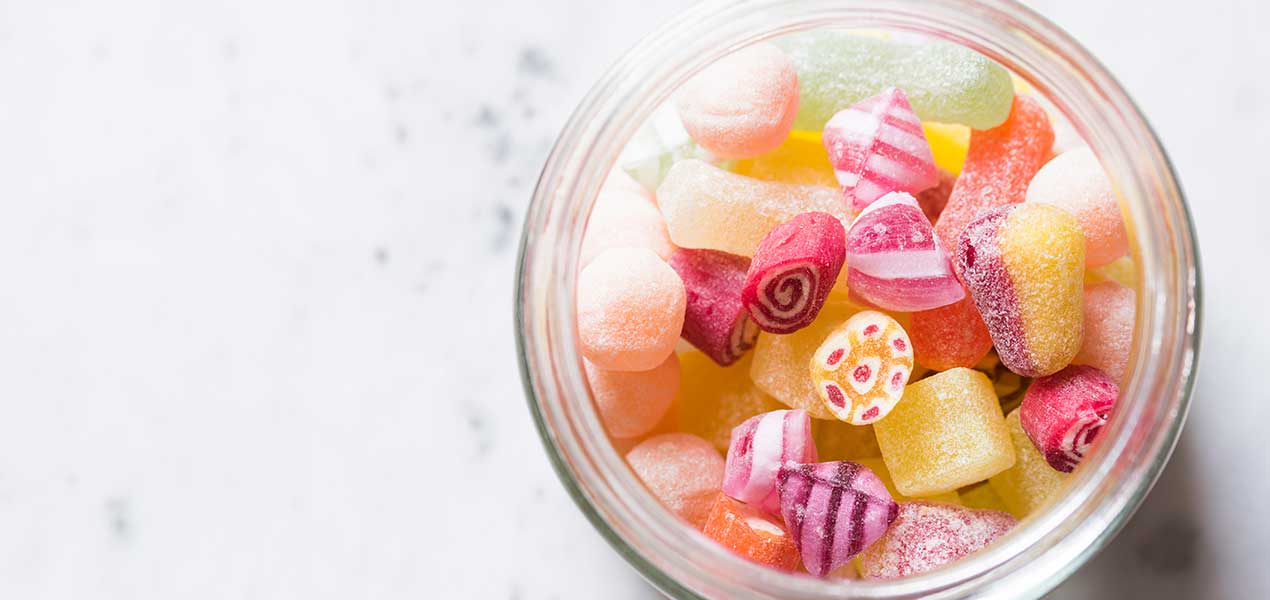Food & Mood

Food can be a form of medicine, in that it affects the functioning of your mind and body so much that making changes to our diet can have a significant effect on how we feel mentally. For those suffering from mental health disorders the go to cure is generally either counselling and/or some form of medication, when food could offer a similar solution1, yet it is a solution that is often overlooked.
One particular study2 treated patients with depression using either a diet support group or a social support group, and after 12 weeks of treatment those in the diet support group showed a more significant improvement in terms of remission. This could be the first in a long line of studies to demonstrate the positive association between a healthy diet and improvement in mood.
Which popular foods can influence our mood?
Sugar: Throughout the day we sometimes experience sugar lows, when our blood sugar level drops, leaving us feeling tired, irritable and maybe even a little depressed, and so we crave sugary foods. These cravings can then encourage us to reach for sugary snacks which will provide a temporary spike in blood sugar levels and therefore a temporary increase in mood.
The reason that this change is only temporary is because chocolate, for example, releases sugar quickly into our blood as it is easy for our body to digest, therefore we have a sudden surge in our blood sugar levels. However this sugar does not remain in the blood for long as it is soon used as energy, meaning blood sugar levels drop again.
Which is why it is important to reach for foods that will prolong the increase in blood sugars by releasing sugars slowly over a longer period of time, making sugary cravings less frequent.
So opt for an apple instead of a chocolate bar, muesli instead of frosted flakes, brown bread instead of white bread, and your blood sugars will be raised for a longer period of time, as well as your mood being lifted for longer too.
Caffeine: drinking caffeine containing foods and drinks shortly before going to bed can cause disturbed sleep, resulting in tiredness the following day. Also for those who rely heavily on caffeine, if the body experiences a considerable time period with no caffeine intake, mood can drop, causing increased irritability. For this reason alone reducing regular caffeine intake is advisable, however this should be done gradually to allow the body time to adjust to a lower intake as well as reducing caffeine's effects on mood.
Junk food: Although not a specific food group within the world of nutrition, foods that provide little nutrition and that have adverse effects on the body, tend to be considered junk food, such as chocolate, sweets, ice cream, crisps, to name a few. Diets that are high in such foods, and therefore diets that are high in fat and sugar, generally tend to be low in vitamins, minerals and essential fatty acids. This can then have a knock on effect on our mood, not to mention the fact that the body probably isn’t receiving the right amount of nutrients that it needs. Again these mood slumps are likely to correlate to the quick rise and fall in blood sugar levels experienced after eating particularly sugary foods, so try some of the savvy swaps listed below to boost your mood.
So once again the age old advice of eating a healthy, balanced diet comes in (it really is what us nutritionists live by). There is no mention of caffeine, 'junk food' and sugary foods within the Department of Health's Eatwell Guide because our body does not need them, although understandably are part of most diets, it is just important to remember that when we consume too many of these foods that our mood can suffer.
Some Food & Mood tips:
No "Artikel" entries can be found